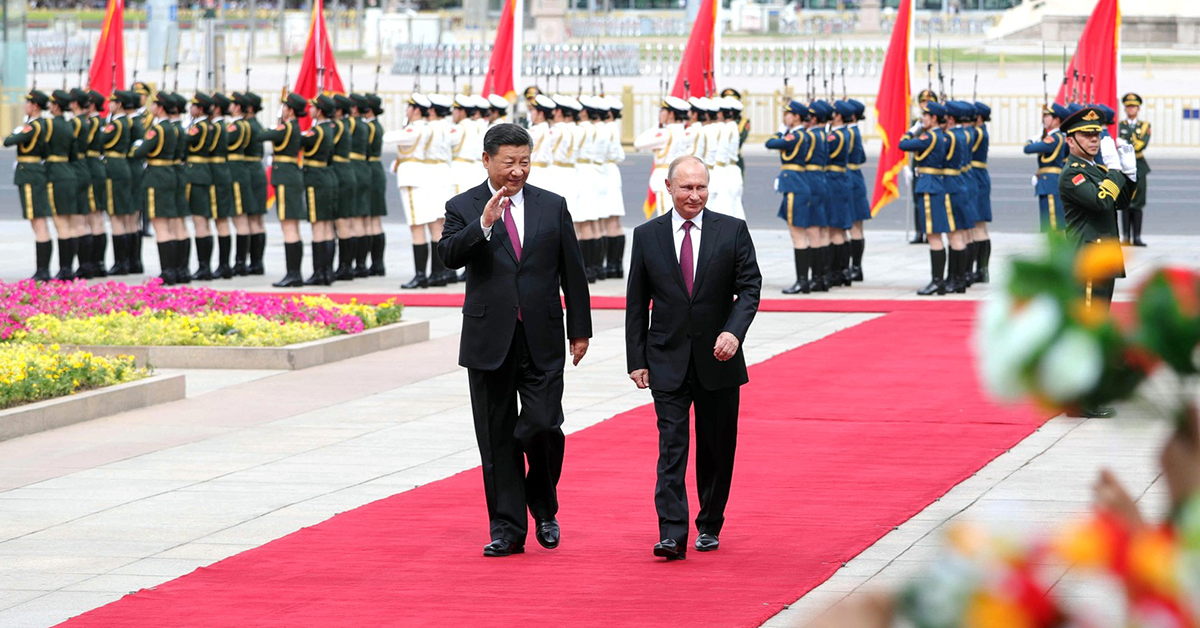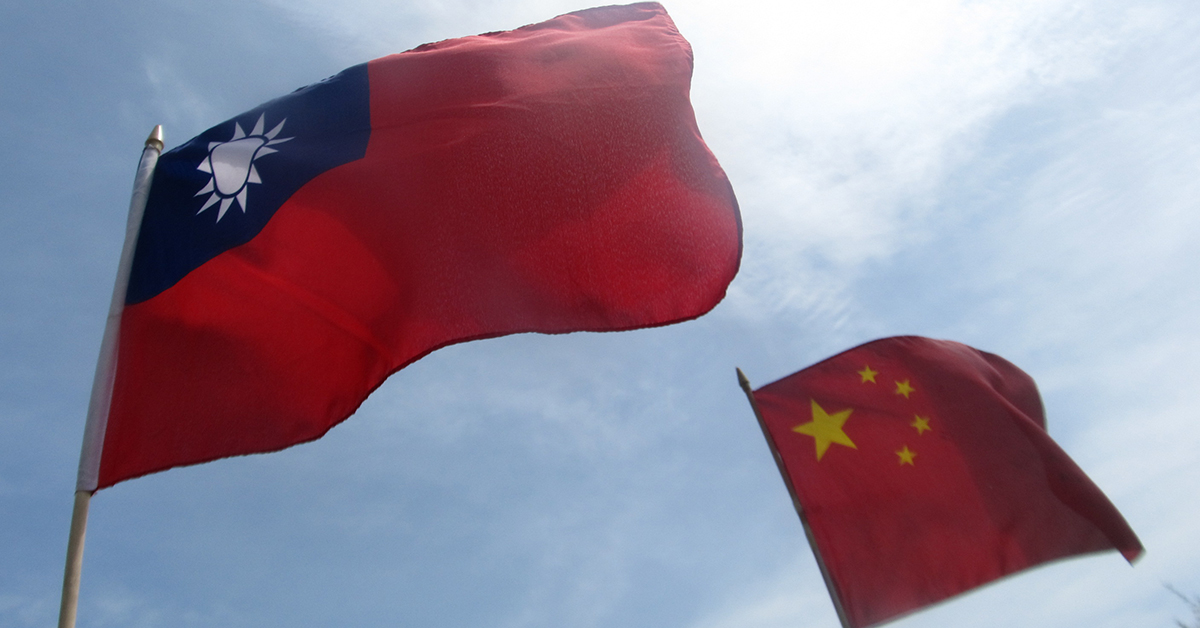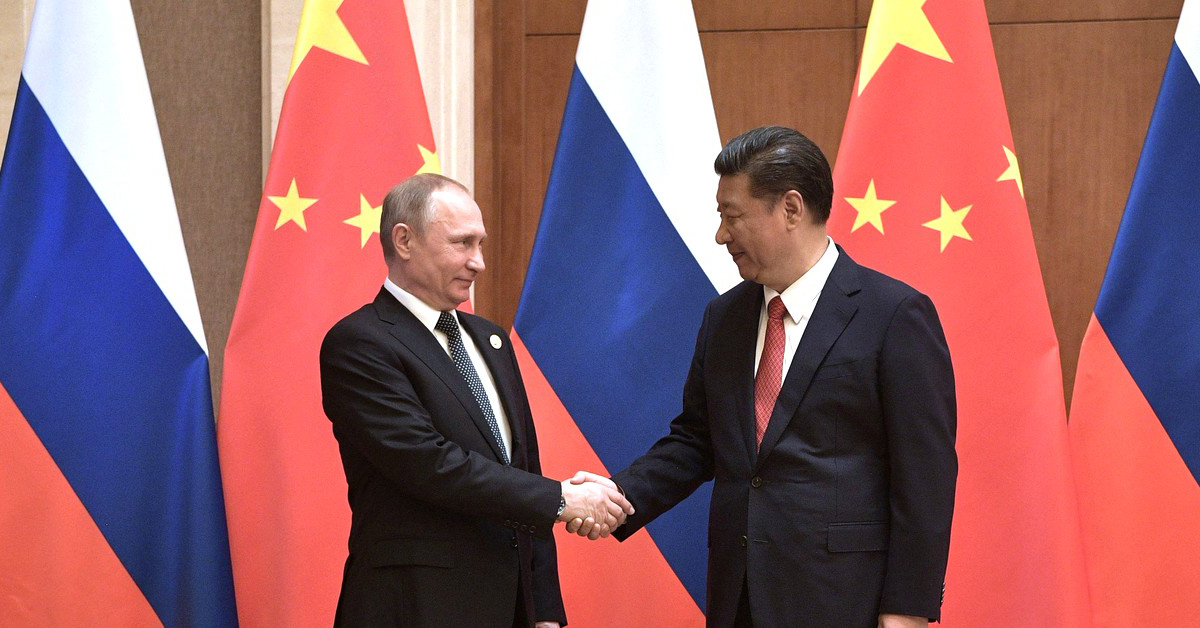- It is critical to understand what kind of lessons Chinese civilian and military leaders may be taking away from the current crisis for assessing the future security situation across the Taiwan Strait and within the East Asian theatre.
- While Chinese companies have broadly adopted a business-as-usual approach to dealing with Russia they are treading carefully, and Chinese leaders and strategists have evidently begun to reflect upon China’s own economic vulnerabilities.
- China tends to study foreign wars closely, having not fought a foreign war since 1979. The war in Ukraine reiterates the priorities that already exist in the People’s Liberation Army’s ongoing modernisation efforts.
As one of the defining events of the post-Cold War international order, Chinese leaders and strategists are likely in the process of learning important lessons from Russia’s war in Ukraine. The following reviews emerging evidence and argues that Beijing has in fact begun to review its own strategic vulnerabilities that may become exacerbated during the fall-out of a potential future invasion of Taiwan.
China’s lessons are both economic and military in nature. Following an unprecedented sanctions package against Russia and the seizure of assets owned by Russian oligarchs and enablers of the war, Chinese leaders have ordered senior cadres to minimise their economic exposure to potential Western sanctions as well as stress-test China’s economic bottlenecks. Similarly, China’s senior military officials will likely also take away important lessons regarding the execution of a potential military strike against Taiwan. Such military lessons could include the importance of a decisive and early strike against the capital Taipei, the importance of anti-corruption measures in Chinese force development, and the importance of nuclear weapons as tools of ultimate strategic deterrence.
It is important to note that this review is based on emerging evidence and to be qualified in the face of fresh events. Nevertheless, attempting to understand what kind of lessons Chinese civilian and military leaders may be taking away from the current crisis will be of critical relevance for assessing the security situation across the Taiwan Strait and within the East Asian theatre more generally for the years to come.
Economic Lessons
In response to Russia’s escalating invasion of Ukraine, the US, the EU and some of their partners have imposed the most extensive package of sanctions to date. This includes the freezing Russian central bank reserves and Russian funds held by US banks, punitive measures such as asset seizures against individual Russian oligarchs and enablers of the war in Putin’s closest circles, and, after initial indecisiveness, the removal of major Russian banks from the financial messaging service SWIFT, constraining cross-border payments to Russian companies. Following the US ban on all Russian oil and gas imports, the EU has imposed a partial ban on Russian oil in June as well as restrictive measures on Russian banks, broadcasters and individuals involved in war crimes in Bucha and Mariupol.
While China’s official reaction to these measures has been characterised by strong rhetorical opposition, describing sanctions as unilateral tools of power politics, Chinese state-owned and private economic actors and companies have responded in a diversity of ways to Russia’s invasion. According to a database from the Yale University School of Management, over 1,000 companies globally have announced that they are curtailing business operations in Russia to some extent. As concerns Chinese actors, 41 companies including ANT Group and Tencent continue to operate business-as-usual in Russia.
Four Chinese companies are postponing planned investments and developments while continuing existing business operations, including the tech firms Xiaomi and Huawei. Several state-owned oil corporations, including Sinopec, China National Petroleum Corp (CNPC) and China National Offshore Oil Corp (CNOOC) have reportedly been re-evaluating their business operations in Russia to avoid potential economic fall-outs. One major SOE, Sinopec, suspended plans of new investments worth an estimated $US500 million and other companies such as the Bank of China and ICBC have temporarily curtailed business operations without formally leaving the country. These reactions have to some extent challenged initial concerns that Chinese SOEs may quickly take up positions vacated by Western companies in Russia.
One group of outfits, including the multilateral Asian Infrastructure Investment Bank (AIIB) headquartered in Beijing and drone manufacturer DJI, have curtailed business operations to a large extent while keeping some options open for a possible return to Russia in the future.
While there are differences in corporate responses to Russia’s invasion, this data provides some evidence that structural integration of China-Russia economic ties has survived the immediate economic fall-out of Western sanctions. In this regard, China’s large SOEs are likely treading carefully in the short term to manage risks, while they may abandon this hedging strategy in the long-term when opportunities to further capitalise on Russia’s isolation from the global economy arise.
In May, for instance, reports indicated China’s interest to buy Russian oil for Chinese strategic reserves. These talks are reportedly ongoing at government, not firm, level, suggesting that Chinese leadership is aware of the strategic importance and sensitivity of such activities in the current context while the West is waning itself off Russian energy exports. Beyond supporting Moscow, however, budgetary considerations may also be a motivating factor for China, given the relatively cheap nature of Russian oil. As such, it is likely that the above should not be interpreted as a general shift away from Russia as energy supplier, but rather seen as a short-term risk-management approach.
Importantly, China has as of yet not enabled Russia to circumvent Western sanctions in a systemic way. While some analysts have speculated about potential future violations (citing Shell’s reported intentions of withdrawing from its 27.5% holding in the Sakhalin-2 liquefied natural gas venture and the company’s joint talks with China’s state-owned oil and gas majors CNOOC, CNPC and Sinopec), China has not aided Russia in systemically evading Western sanctions at the time of writing.
In this context, Chinese leaders and strategists have evidently begun to reflect upon China’s own economic vulnerabilities. In May, reports surfaced that Beijing reportedly ordered a ‘stress test’ to prepare for the prospect of similar sanctions. While the sources of these reports were anonymised, the reports claimed that such exercises began in late February and early March, when the US and its allies first imposed sanctions on Russia, and tasked key state agencies to develop response plans in case China would experience similar economic disruptions. On April 22, for instance, Chinese regulators, including Central Bank and Finance Ministry officials, reportedly held a meeting with major banks including HSBC to discuss China’s vulnerability to Western sanctions including the freezing of Chinese assets overseas.
Further, an internal CCP directive was also reported to bar senior officials from owning property abroad or stakes in overseas entities as well as their ability to set up accounts with overseas financial institutions, likely reflecting Beijing’s attempt to insulate senior cadres from asset seizures and other forms of economic coercion that could affect their loyalty to China’s top leaders should the US and its allies level similar sanctions against China.
From a strategic perspective, conducting a review of China’s vulnerabilities and potential options in the case of economic war seem understandable. Besides around $1tn US Treasury bonds, China’s dollar-denominated holdings include vast amounts of corporate stocks, long-term agency bonds, and corporate bonds. Divestiture will thus be difficult.
The extent of Sino-US economic and financial interdependence also make it a lot more costly for Washington to sanction China in the event of a potential Taiwan contingency, with many analysts referring to ‘mutual economic destruction’ as a short-hand for the potential consequences of such policies.
While it is unclear what the results of China’s ‘stress-tests’ have been, they demonstrate that Beijing aims to draw lessons from current events to prepare for potential economic fallouts in the future and minimise the potential leverage the US and its partners may be able to exert when it comes to deterring forceful reunification with Taiwan.
Military Lessons
On the military front, China will certainly attempt to draw lessons from the disastrous first few weeks of Russia’s invasion. Some have speculated that the PLA might have to acknowledge the power of asymmetric resistance despite overwhelming force. Others have warned that our overestimation of Russian capabilities should not lead to a revision of our estimates of China’s military might, given that the latter is seen to be a more formidable adversary and is likely to avoid Russian mistakes.
At present, an analysis of what exactly the People’s Liberation Army (PLA) may take away from the war is necessarily preliminary. However, a few observations can be made based on the PLA’s ongoing modernisation efforts and the role of observing other countries’ wars in the past.
The latter has been an important source of China’s ongoing military reforms. The PLA has not fought an active war since the 1979 Sino-Vietnamese border war, but has been confronted with fundamental changes of the nature of warfare in the international system over the last four decades. Studying foreign wars has thus been a key input into China’s ongoing military modernisation.
In addition, the military relationship between the PLA and Russia’s armed forces has become increasingly close in recent years. Personnel exchanges on both sides and joint trainings mean that PLA analysts are likely to observe Russian troops’ performance in Ukraine closely. The PLA has closely studied Russia’s ‘New Look’ military reforms which were initiated in 2008, and China and Russia further signed a military cooperation agreement in late 2021. Given Russia’s fairly extensive history of military engagements in recent history, including experiences in in Chechnya, Georgia, Crimea, eastern Ukraine, Syria, and now all of Ukraine, the PLA may well see this war as a key opportunity to observe how Russia’s military fares. If the PLA were to observe the performance of any military, Russia’s armed forces would consequently be at the top of the list.
Despite this potential importance of the conflict for the PLA, the official response was initially rather muted. It was only from mid-March onwards that the PLA published a series of articles by Jun Sheng, commonly understood as a ‘voice of the military’, laying out an official position on the war. Unsurprisingly, the articles echoed the central government line by shifting blame to the US and NATO expansion as the main culprit for the situation in Ukraine. While the op-eds refer to a ‘war’ (战争), instead of merely defining it a military operation or conflict, they otherwise reiterated China’s balancing act between appealing for a constructive settlement of the war while simultaneously promoting a pro-Russian stance. Indeed, most of the writings read less like an analysis of the Russia-Ukraine war and more like a laundry list of complaints about the US-led global security order, NATO, and US policy in the Indo-Pacific. They thus give us little insight on what kind of strategic and operational lessons the PLA might be in the process of learning.
As it is difficult to tell exactly what the PLA will take-away from the war, we are better off critically reflecting upon what they could potentially learn from it and how this might affect Chinese military reforms. Firstly, some observers were quick to point the synergies between Russian military advances – and failures – in Ukraine, and China’s prospects for bringing about a forceful reunification with Taiwan. However, a comparison between an amphibious landing in Taiwan and the war in Ukraine is not straightforward. The Taiwanese coast offers few entry points for the PLA to get boots on the ground and orchestrating such an operation in the face of fierce Taiwanese resistance is all but an easy feat. The different terrains, geographies and sizes of the two countries ultimately challenge a direct comparison.
Secondly, we also know that learning – in militaries generally and in party-armies especially – takes time. As existing research indicates, China has adapted its military strategy in response to changes in the global conduct of warfare and under the condition that the top echelons of the Party were united. This was the case, for instance, in the aftermath of the first Gulf War, which demonstrated to Chinese strategists the importance of information technology in modern, joint military operations.
However, even if perceptions of US and allied military dominance accelerated China’s post-Cold War military modernisation, implementation of corresponding reforms did not happen overnight, as reflected in Xi Jinping’s post-2015 reform push. As previous research shows, the PLA has in the past not always found consensus on lessons learned from other militaries’ engagements overseas and the implementation of lessons learned has sometimes been slow.
Nevertheless, despite these important nuances and disclaimers, China will likely have observed several key dynamics. First, while Russia’s conduct of war was a far cry from effective modern joint command operations, aspects of the Ukrainian theatre have shown new variables in fighting a war that may also be relevant in a contingency against a country that is considered an ally or partner of the US or NATO. Elon Musk’s deployment of Starlink, a cluster of small satellites supplying high-speed internet access to Ukrainian forces, has reportedly led Chinese researchers to argue for more effective anti-satellite capabilities to give Beijing the capability of intervening in the case of a similar deployment against China.
The war has certainly led to a re-evaluation of Russian military capabilities, recalled the importance of discipline in the officer corps of any large military, and shown the effectiveness of anti-tank weapons in the context of effective resistance.
On an operational level, looking at Ukraine, the PLA and senior Chinese leaders may identify the importance of a quick, decisive and overwhelming strike against Taiwan. Russia’s failed attempt to take Kyiv by force during the early stages of the invasion might underline the importance for Beijing to execute a decisive strike against Taipei early on in any potential military campaign against the island. The failure to take Kyiv and swiftly install a puppet regime enabled Volodymyr Zelensky to galvanise support from NATO and their allies. Beijing may wish to prevent a similar scenario in Taiwan by swiftly disposing the government in Taipei before they can appeal to the international community for further support and frame the situation in their favour.
Strategically, Chinese leaders may also take a long look at the role of nuclear deterrence in the current war between Russia and Ukraine. Putin’s implicit threat of nuclear war certainly played a role in deterring NATO from becoming more actively involved, for instance, in imposing a no-fly zone over Ukraine. As a recent war game suggests, the threat of nuclear war in the case of a Taiwan contingency to deter the US from responding militarily is real. In the context of President Biden’s repeated rhetorical challenges to the long-held US stance of ‘strategic ambiguity’, such scenario-planning will become ever-more important from Beijing’s perspective.
Despite all this, compared to the Gulf War in 1991, the war in Ukraine has by and large not revised existing hypotheses about the conduct of war in an information age. Any observation on the part of the PLA is thus more likely to factor into already existing reform processes than lead to any sizable shift in China’s already existing military strategy.
For instance, while it is certainly true that the Russian military campaign reminds of the importance and difficulty of conducting joint command operations as well as the importance of maintaining military vehicles and equipment, the PLA has long before the Ukraine war been aware of the need to improve jointness and logistics capabilities. In 2016, as part of Xi’s reforms, the PLA accordingly replaced the General Logistic Department with the Logistic Support Department responsible for planning, standard setting and facilities management, and established the Joint Logistic Support Force. The war in Ukraine will thus largely reinforce some of the priorities that already exist in the PLA’s ongoing modernisation efforts.
Conclusion: Towards a New World Order?
The war in Ukraine represents a crucial inflection point in the development of the post-Cold War global order. While Russian military aggression and war crimes in Ukraine have shaken Europe’s security architecture to its core, the conflict also heralds a new chapter in China’s future as a major power. How China continues to respond to Russian aggression and the kind of lessons China may take away from the situation will be of paramount importance to understanding China’s ongoing emergence as a global power in the years to come.
This is part two of a two-part series on the implications of Russia’s invasion of Ukraine for China. The diplomatic implications are examined in part one.
This article gives the views of the author, and not the position of the China Foresight Forum, LSE IDEAS, nor The London School of Economics and Political Science.
The blog image, “Russia Ukraine War – Day 42“, is licensed under CC BY 2.0.






Hello, Dr. Fiala. Perhaps the use of the word “invasion” is not appropriate because Taiwan is a part of China according to One China Policy (which is a pre-condition when establishing diplomacy with Beijing), it is officially recognized by the UN and the vast majority of states around the world (includes the UK). The word “recapture” might be better.